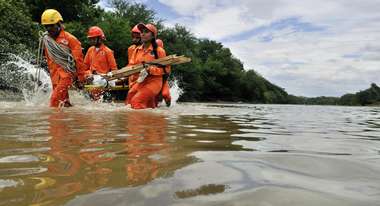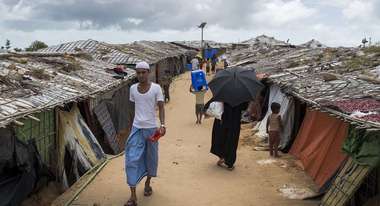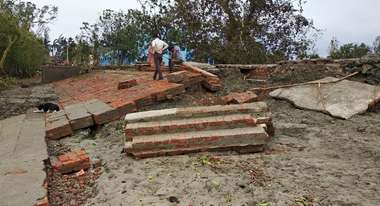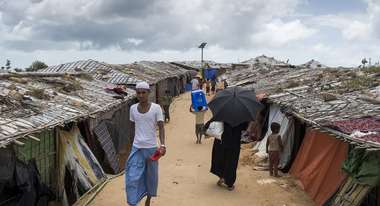Monsoon threatens Rohingya
Rohingya refugees from Myanmar face the threat of a disaster within a disaster. The cyclone and monsoon season is just around the corner. Welthungerhilfe and its partners are preparing to prevent a worst-case scenario, and to provide fast assistance.
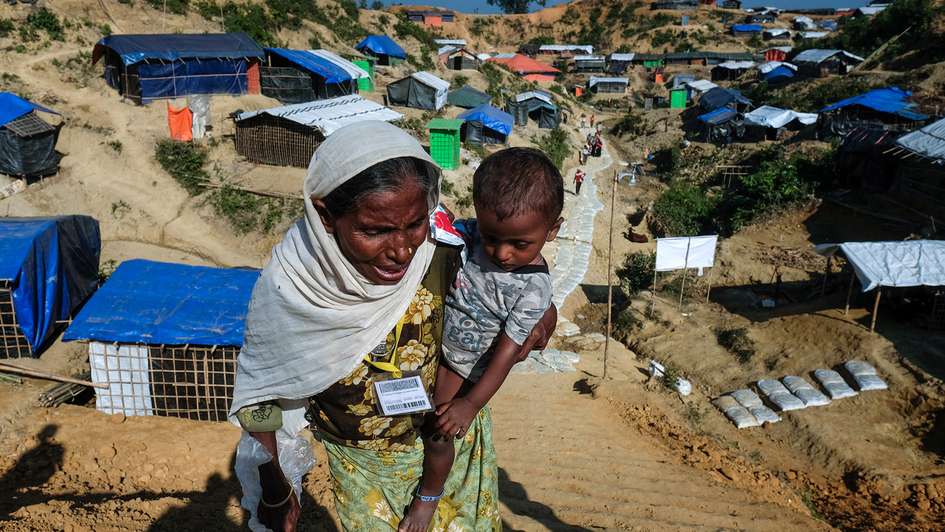
The sun is still shining in Cox’s Bazar. Many of the Rohingya living in the refugee camps look up at the sky with relief. Every day that the heavens do not open to inundate them with a deluge of rain and no tornadoes arrive, is a good day. But the clock is ticking. The cyclone season normally begins in April, and by July at the latest the weather changes to continuous rain and monsoons.
An enormous challenge
After sometimes traumatic experiences in Myanmar and an arduous exodus, more than a million Rohingya must now grapple with tough day-to-day conditions in the refugee camps around Cox’s Bazar. It is also an immense challenge to provide food, hygiene kits, water and toilets. The refugees are living in very cramped conditions. Thousands of makeshift houses are built on clay hills. At least 100,000 people have settled in areas that would probably be flooded in case of heavy rain and are at risk from landslides. However, there is no space to evacuate most of the inhabitants.
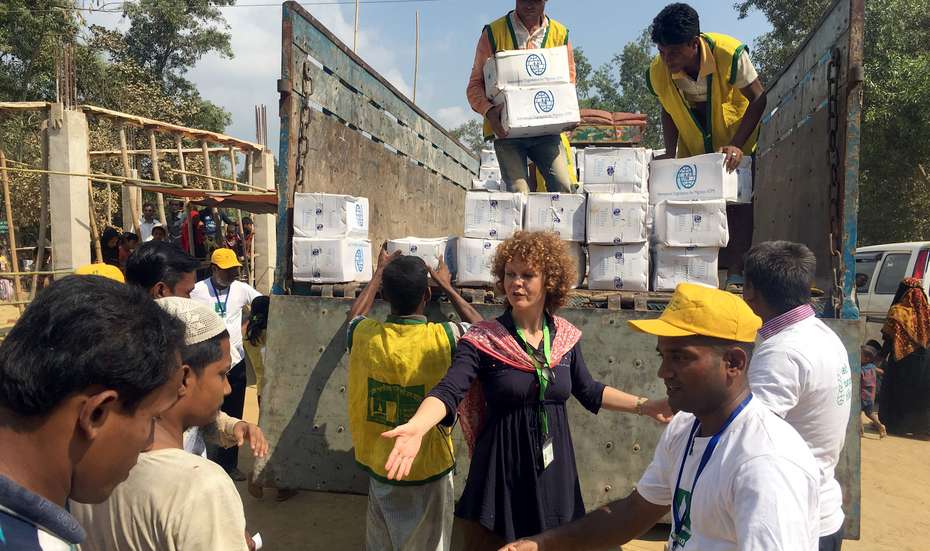
As soon as the rains come, there is a risk of latrines overflowing. Diseases and epidemics would break out, and clean drinking water and food would become scarce. For many thousands, their life is literally sinking in the mire. Impassable access roads are another serious problem, as they make it very difficult to reach people with aid consignments. The list of dangers is long.
How Welthungerhilfe helps
- Between February and April, Welthungerhilfe worked with partner organisations Anando and the International Organization of Migration (IOM) to deliver over 10,000 hygiene kits in the camps around Cox’s Bazar.
- Aid organisations have self-organised to attend to people who cannot get to safety.
- Hygiene promoters are being trained in collaboration with local organisations Anando and FIVDB, to prevent the outbreak of diseases - particularly those involving diarrhoea.
- Contact is made with the affected communities to find out which individual measures must be taken first. Priorities are also established for the goods that are most urgently needed.
- Distribution of water purification tablets is planned as a preventive measure.
- If there is an outbreak of disease, a trained team will disinfect latrines and homes with chlorine.
- Welthungerhilfe plans to work with partner organisations to instruct volunteers in the camps in first aid, and to train them to fight fires.
- In case of natural disasters such as floods, landslides or cyclones, emergency distribution of water containers, hygiene kits and water purification tablets is planned.
In addition to its current emergency assistance and disaster risk reduction projects, Welthungerhilfe has a further aim in Bangladesh. The local aid organisations Anando and Friends in Village Development Bangladesh (FIVDB) have been working for some time in the camps around Cox’s Bazar for the Rohingya and host communities. They help the communities with their water supply and hygiene, community-building and food security. For these reasons Welthungerhilfe focuses on strengthening regional structures and supporting partner organisations on the ground with their challenging work.
This article was based on an interview with Dr Margret Müller, who works as an emergency assistance coordinator for Welthungerhilfe in Bangladesh.





